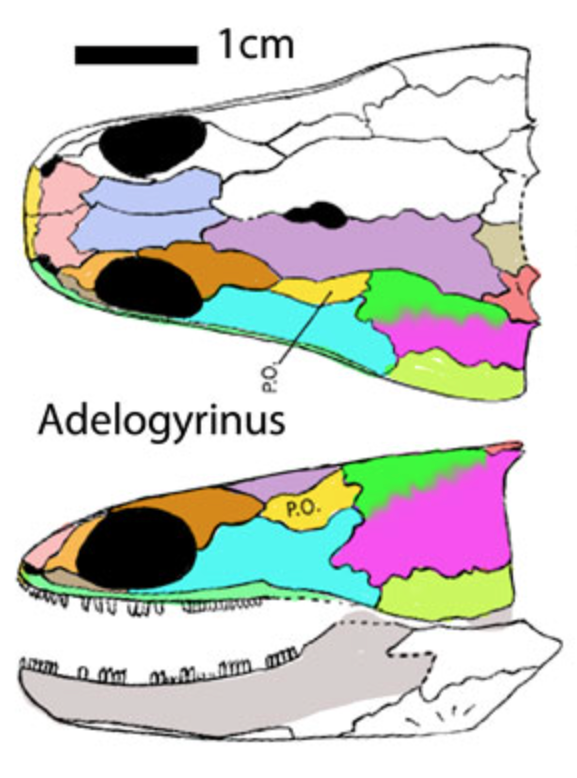Welcome to Adelogyrinus

Name Definition
Obscure tadpole
Name Given By
David M.S. Watson in 1928
Location
Dunnet Shale in Scotland, United Kingdom
Classification
Stegocephalia, Adelospondyli, Adelogyrinidae
Size
the skull is around 4.5 cm long, the total body length is estimated to be around 50 cm long
Temporal Range
Visean - Serpukhovian stages of the Mississippian subperiod in the Carboniferous period, around 345.3 - 326.4 million years ago
Ecological niche
small aquatic insectivore
Species/Sub Species
A. simorhynchus
Diet
Adelogyrinus probably consumed insects as its teeth were shaped for such a purpose
Introduction
Adelogyrinus is a genus of adelospondyl amphibians that lived in Scotland during the Carboniferous period. Adelogyrinus means “obscure tadpole” referring to the fact that Adelogyrinus is not well known from fossil remains and also that it is thought to have been an adelospondyl, a kind of extinct snake-like amphibian, that refers to the tadpole part of its name. The specific name simorhynchus means “pug-nosed snout” which probably is in reference to the relatively sub-rectangular but also blunt end of its jaws.
Not much is known about Adelogyrinus due to the lack of fossils (a skull, some vertebrae, forelimb elements, and some scales are the only remains discovered of Adelogyrinus), however it is thought that Adelogyrinus was an amphibian that hunted in the prehistoric forests and waterways of the Carboniferous that would eventually become Scotland. Because some teeth were preserved with the skull of Adelogyrinus, we know that Adelogyrinus was probably an insectivore, or an animal that primarily hunted insects. It is also thought that Adelospondylus was similar to the other adelospondyl genus Adelospondylus, meaning they would have been snake-like creatures. Because some forelimb elements of Adelogyrinus were preserved, it suggests that Adelogyrinus was still capable of hunting on land so it could gain access to more insects. Above is an illustration of the skull of Adelogyrinus.